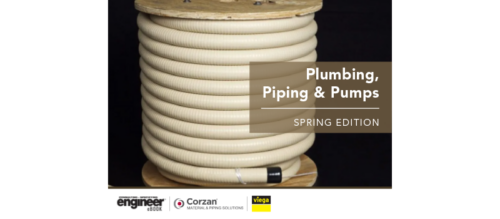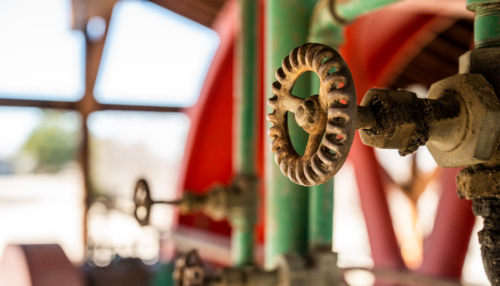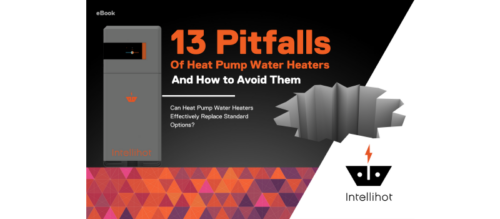Women in engineering profile: Catsy Lam
International Women in Engineering Day, celebrated on June 23, 2018, celebrates the achievements of females in various engineering industries. Here’s a Q&A with Catsy Lam.
To honor International Women in Engineering Day, Consulting-Specifying Engineer asked select people to answer questions about their background and mentors and their career path. Here’s a Q&A with one of them.
Name: Catsy Lam
Position: Material Sciences Technical Leader, Victaulic, Easton, Pa.
Education:
- Bachelor of Science, Chemical Engineering, Polytechnic Institute of New York University
- Master of Science, Chemical Engineering, Lehigh University
CSE: What or who was your biggest motivation in becoming an engineer?
Lam: Math and science have always been my favorite subjects, even as a child. Notably, being one of the few girls in these classes pushed me to pursue a career that provided a problem to solve, a creative outlet and a continuous learning environment to be a part of. I enjoyed the competition in my classes and the ability to see my work on paper turn into something real. My engineering degree has opened many doors for me including my 13 years at Victaulic and I have seen the benefits of making that decision as a freshman in college come to fruition time and time again.
CSE: What advice would you give someone in high school about becoming an engineer? What resources or references would you suggest they look at?
Lam: Engineering, no matter the industry is always evolving. A way to develop these qualities is through experience. Applying for internships, talking to your professors and shadowing professionals are ways to not only help you identify what industry to work in but also begin to identify your skillsets. Asking questions and finding someone who can mentor you is also important. A mentor can support you on many levels whether it is providing advice, sharing their experience and guiding you in your career.
CSE: While you were in college, what helped shape your decision to specialize in your area of expertise?
Lam: When I started my undergraduate degree, there were limited options for engineering majors so I quickly narrowed it down to chemical because it was most interesting to me. I was one of six females in the class by graduation. Nearing graduation I believed I was going to pursue my Ph.D. in chemical engineering as it relates to health care. However, things changed when Victaulic contacted me to work in their materials division. Now it has been thirteen years at Victaulic and I have had the opportunity to create and see my work implemented and used by our clients and it is very rewarding.
CSE: Do you have advice for young women just starting in the engineering field?
Lam: Curiosity is extremely important when starting off in the field of engineering. Developing a love for learning and curiosity will allow you to create new solutions and solve any problem. Engineers must have a passion for creating something new and different. Without these things the job is much more difficult and success will be hard to find.
CSE: What trends or challenges do you foresee in your field? What advice would you give to others to help adapt to these types of changes?
Lam: The pipe joining industry is getting more and more competitive. There are ever-changing process variables in different piping applications around the world. Something that works today doesn’t mean that it will work effectively in near future. New ideas will quickly become old ideas if there is no constant improvement and innovation. Defining visionary strategy early and binge more externally focused to understand customer needs will be helpful in the evolving environment.
CSE: Describe an unusual project you worked on. What were the risks or challenges you took? Outline the success story.
Lam: Recently an existing customer came to us because they do not like the performance of their EDPM gaskets sourced by one of our competitors. They turned to Victaulic because there are no other matching components, the material was not as reliable as they had hoped. We did a side-by-side design to explain why the company should switch to Victaulic’s gasket materials as no one else could explain the issues to them. There were some challenges because they essentially came to us asking to recreate the gasket in the way they wanted it. This was interesting to navigate as we had to explain to their material experts that what they wanted would not work and prove that we were the better option through data and scientific analysis.
CSE: Are there professional development tips you can offer other female engineers? What helped lead to your success? This might include public speaking courses, working with a mentor, or some other advice.
Lam: Being a minority in an industry is beneficial to help bring new ideas to the table. You can make a huge difference if you express your opinion that the others in the room may not. It is so valuable to have diversity in thought. Not one person can be successful without a team of people that all have the same goal. When I first started at Victaulic, I was the only female engineer on my team. Over the years, I’ve seen the growth in female engineers. In my personal experience working hard to create new ideas and being a good team member has certainly served me well in my tenure as a female engineer at Victaulic.
CSE: Many manufacturers want to be seen as the go-to resource for mechanical, electrical, plumbing (MEP), or fire protection engineers. How do you work with these consulting engineers to ensure you’re seen as a thought leader?
Lam: I think there is no better way to convince any consulting engineers than providing technical test data and field data with detail explanation on the product design. I would address their questions or concerns with historical test data (if any) or new design of experiments.
CSE: In your job, what’s the one thing you are most proud of? What do you want people to take away about you and your profession after meeting you only briefly?
Lam: I am extremely excited about developing the proprietary fire-resistant gasket material for maritime and oil and gas markets. The custom formulated nitrile gasket material being “heart of the joint” is compatible with flammable liquids that are commonly used in pipelines and is capable of ensuring the highest degree of sealing during 1,200° to 1,400°F fire for 30 minutes without affecting joint integrity. The gasket is DNV and LR approved and it also met API (American Petroleum Institute) 607 requirements.
I would like to be seen as a materials expert with experience in non-metallic product development including sealing materials, coatings, lubricants, adhesives and non-metallic piping.
Do you have experience and expertise with the topics mentioned in this content? You should consider contributing to our CFE Media editorial team and getting the recognition you and your company deserve. Click here to start this process.




